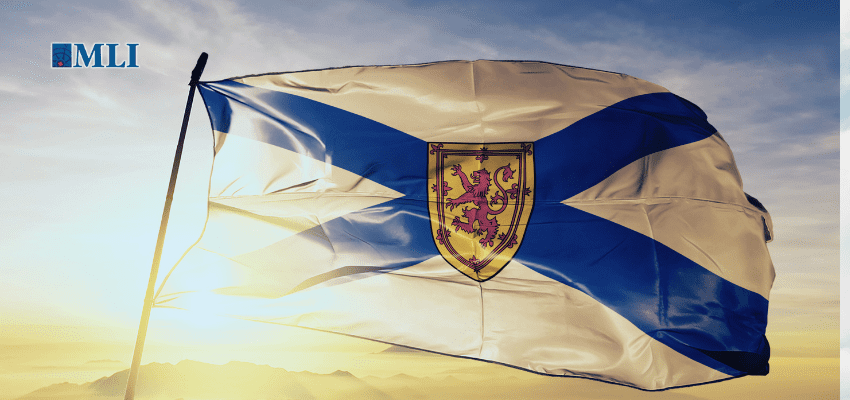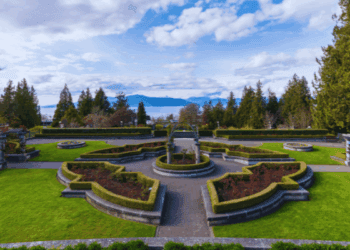This article originally appeared in National Newswatch.
By Ryan Manucha, May 9, 2025
When a duly licenced Quebec soccer dad shuttles his daughter to a tournament in Ontario, no government official asks him to pull his sedan over at the provincial border for a quick road test. What enables his seamless arrival at the pitch is the fact that two governments have decided to accept each others’ standards for drivers. This “mutual recognition” is Canada’s most effective tool for breaking down interprovincial trade barriers. Short of the Canadian Pacific Railway or Confederation itself, there is little that has carried as much potential for internal trade as mutual recognition. And thanks to landmark legislation in Nova Scotia, mutual recognition could very shortly become reality.
Premier Tim Houston’s government has passed Canada’s first broad-based mutual recognition bill. It promises to recognize the certification of goods, services, and workers of provinces or territories that enact similar legislation. Ontario, British Columbia, Alberta, and PEI have hinted they may join Nova Scotia with similar legislation. The ongoing upending of the north-south trade linkage is giving Canadian leaders the requisite cover to rethink regulatory fiefdoms that for decades have been sacrosanct.
Mutual recognition is an internationally battle-tested trade liberalizing tool. It can help on real problems, from excessive prices for consumer goods transported interprovincially via truck, to inflated homebuilding costs, to the availability of life-changing health tech like Apple’s AirPod hearing aids. It’s an elegant middle ground between 13 autarkies and exacting uniformity.
According to the “gravity model” of trade, with maximal implementation of mutual recognition, Canada could see an estimated 7.9 per cent boost to its GDP. And if Nova Scotia were to unilaterally reduce its import barriers by 10 per cent, it could boost its long-run GDP by 4.1 per cent. Economic estimates help bring clarity to a debate where the underlying issues are the definition of “high-visibility safety apparel” or occupational health and safety legislation.
Some critics question these estimates. In March, a CIBC report took issue with certain assumptions used in the employed gravity model, and arrived at a much lower estimate of the gains from freer internal trade. Similarly, the Canadian Centre for Policy Alternatives released its own critique. Economist Trevor Tombe, the nation’s foremost expert on interprovincial trade economics, has genuinely welcomed critiques of his work. Indeed, he is the only economist consistently producing original economic scholarship on the topic.
If anything, these estimates understate the impact of internal trade barriers. They lessen the competitive intensity of our domestic marketplace, meaning that our firms are less incentivized to grow up and compete against global counterparts. Protected by provincial regulation, local incumbents have less need to adopt let alone invent valuable and prosperity-creating intellectual property in the era of AI and technological disruption. When workers can more easily move, there is a greater exchange of ideas, technologies, and know-how. The gravity model does not fully capture the positive, dynamic effects of a more integrated economy.
The implementation of mutual recognition by way of legislation is no simple task, but thankfully Canada can lean on a combined 70 years’ worth of lessons from its implementation in Australia and the European Union.
The most common criticism levied at mutual recognition, not just in Canada but elsewhere, is that it inevitably triggers a “race to the bottom” in terms of standards. For instance, in Australia, the state of New South Wales claimed that the process to become a security guard was far easier in Queensland than in NSW, and that the mutual recognition scheme enabled poorly trained guards to work in NSW. However, this completely ignores the fact that, under mutual recognition, NSW had the right to reject security guards from Queensland, so long as it could articulate a legitimate reason. Mutual recognition regimes always provide an “out” on legitimate grounds – but its use requires notification and reason-giving, heightening transparency.
This is a key benefit of mutual recognition. Over time, it promotes inter-regulator dialogue and trust-building. Within 2 years of Australia implementing its mutual recognition arrangement, more than 15,000 Australians had used the scheme to move to another state with their labour qualifications. And within the first five years, the inter-regulatory dialogue facilitated by mutual recognition had contributed to the development of national competency standards for more than 20 occupations.
Examples such as Australia show the power of mutual recognition at lessening internal trade barriers. As other countries, and the United States in particular, embrace economic isolationism, the moment is ripe for bold efforts to strengthen internal trade in Canada.
Ryan Manucha is a contributor to the Macdonald-Laurier Institute. His book Booze, Cigarettes and Constitutional Dust Ups: Canada’s Quest for Interprovincial Free Trade, won the Donner Prize for best in Canadian public policy writing.






